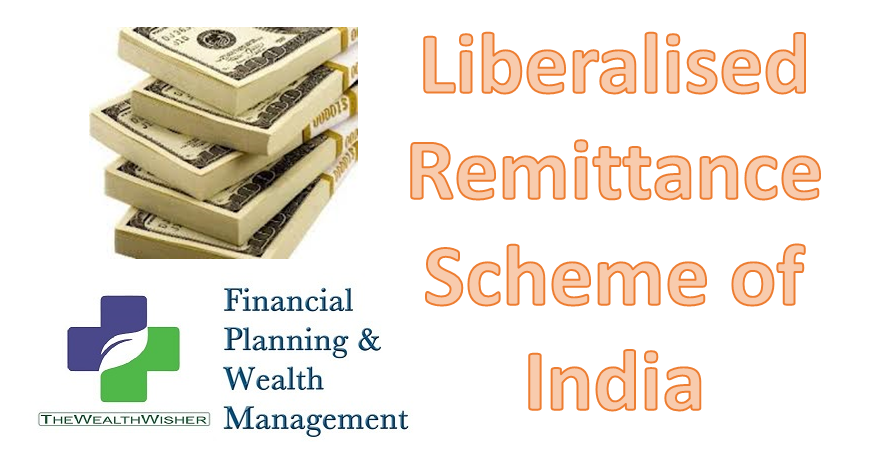Updated: 17 Sept 2019
Till June 2004, even if you had to send some money abroad, you needed RBI permission. But after the introduction of Liberalised Remittance Scheme or the LRS, the need to take permission every time you have to send money abroad was abolished. This has helped NRIs, their families & business interests. This post will help you details of LRS and its provisions.
Liberalised Remittance scheme is available to all resident individuals including minors.
How much can be remitted under LRS
Effective 1 June 2015, under the Liberalised Remittance Scheme made available by the Reserve Bank of India, resident individuals are allowed to remit up to USD$250,000 per financial year (April-March) for any permitted current or capital account transactions or a combination of both.
Current Account Transactions: Transactions that do not impact the Assets & Liabilities of NRI. Eg Forex required for vacation.
Capital Account Transactions: Where a transaction results in altering of Assets & Liabilities outside India. Eg Purchase of property in UK.
Why LRS is required
The major reason is to have information on the remittance. This means:
- Central BankRBI wants to have information about the amount of money that goes out of the country.
- They want to have data for maintaining requirements on Foreign Currency to be kept as reserves.
- RBI wants to see that money is not sent to restricted people & organizations like terror-related funds or drug cartels.
- Another aim is to check the Rupee appreciation or depreciation as – buying of dollars makes Rupee weak.
Some points to take care while using Liberalised Remittance Scheme
- There are no restrictions on the frequency of remittances under LRS.
- Once a remittance has reached the LRS limit, no further remittance is possible during the FY even if some of the proceeds of the investments have been brought back into India.
- Resident individuals (but not permanently Resident) who have remitted their entire earnings and salary and wish to further remit ‘other income’ may approach RBI through their AD bank (Authorized Dealer) for consideration.
- The individual will have to designate a branch of an AD through which all the remittances under the Scheme will be made.
- The applicants should have maintained the bank account with the bank for a minimum period of one year prior to the remittance only for capital account transactions (not for current account transactions).
- An individual has to furnish Form A-2 regarding the purpose of the remittance along with all other documentation as required by the AD.
- The remittance can be made in any foreign currency which is freely convertible. (USD not mandatory)
- The possession of PAN card is mandatory.
The permissible capital account transactions by an individual under LRS are —
- Opening forex account with a bank abroad.
- Purchase of immovable property abroad.
- Making investments abroad (for the acquisition of shares, ESOPs, ESOPs linked to ADR/GDR qualification shares, investment in units of Mutual Funds, Venture Funds, unrated debt securities, promissory notes, etc.).
- Setting up Wholly Owned Subsidiaries and JVs abroad.
- Extending loans in INR to NRI relatives.
Expenses incurred by individuals for the following purposes are also allowed under LRS w.e.f. 26.5.2015 —
- Private visits to any country (except Nepal and Bhutan).
- Gift or donation.
- Going abroad for employment.
- Emigration.
- Maintenance of close relatives abroad.
- Travel for business, or attending a conference or specialized training or for meeting expenses for meeting medical expenses, or check-up abroad, or for accompanying as attendant to a patient going abroad for medical treatment/ check-up.
- Expenses in connection with medical treatment abroad.
- Studies abroad.
- Any other current account transaction.
Additionally, one can’t remit money which originates from certain sources including:
- Lottery winnings or proceeds from gambling
- Some company dividends
- Interest payments on some non-resident rupee bank accounts
- Some specific types of income
Also, LRS restricts remittance for buying & selling forex abroad, purchase of lottery tickets, football pool, racing/riding hobby, sweepstakes, prescribed magazines & all items mentioned in Schedule 1 of Foreign Exchange Management (Current Account Transactions) Rules, 2000. Also, you cannot make a transfer to countries identified by the Financial Action Task Force (FATF) as “Non-cooperative countries or territories”.
For specific details check the FAQs on LRS on RBI Website. Click Here
Some Important Articles for NRIs
Impact on Investments when Status change for Resident to NRI Click
Impact on Investments when Status change for NRI to Resident Click
All about PPF & Can NRI invest in PPF








